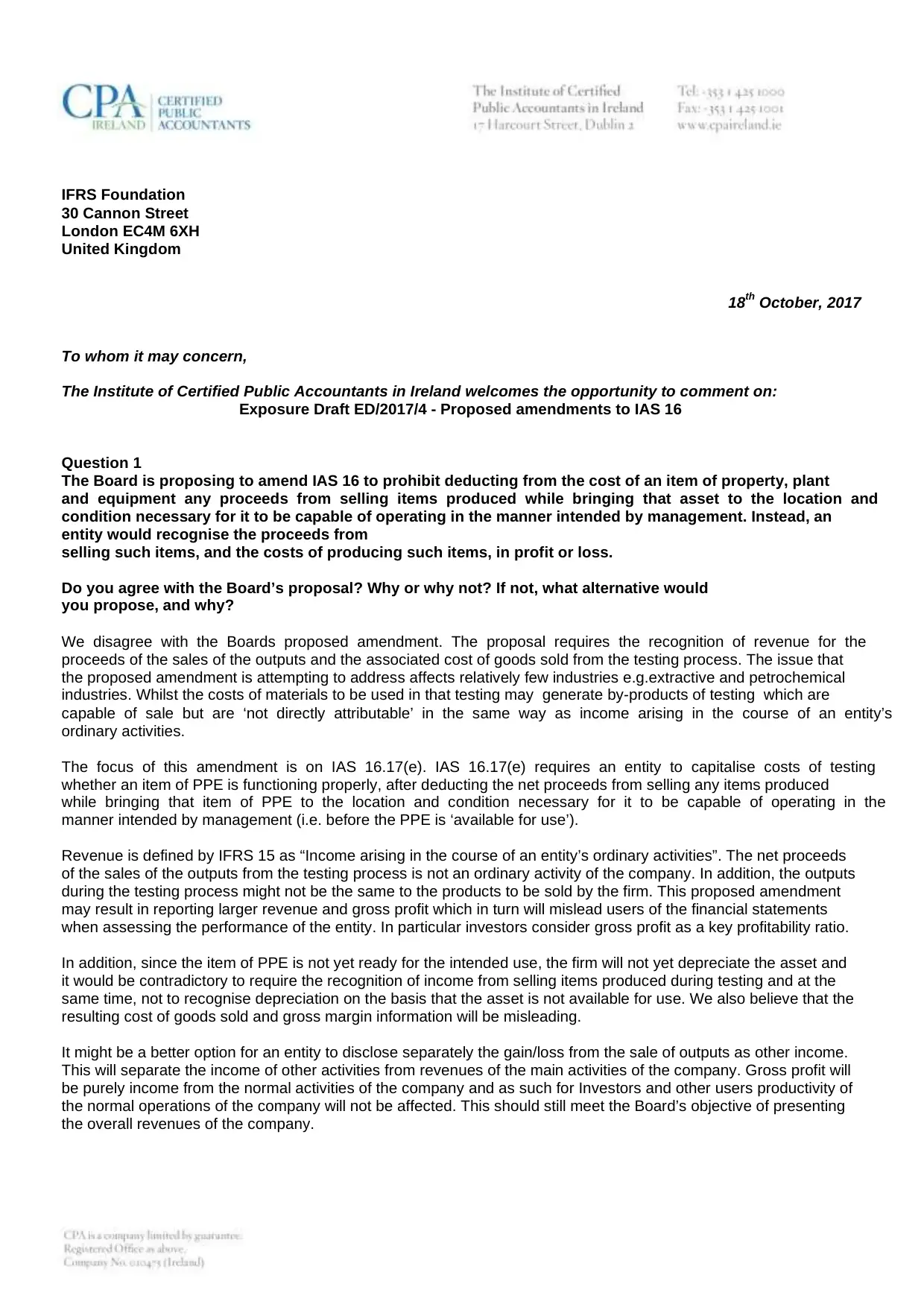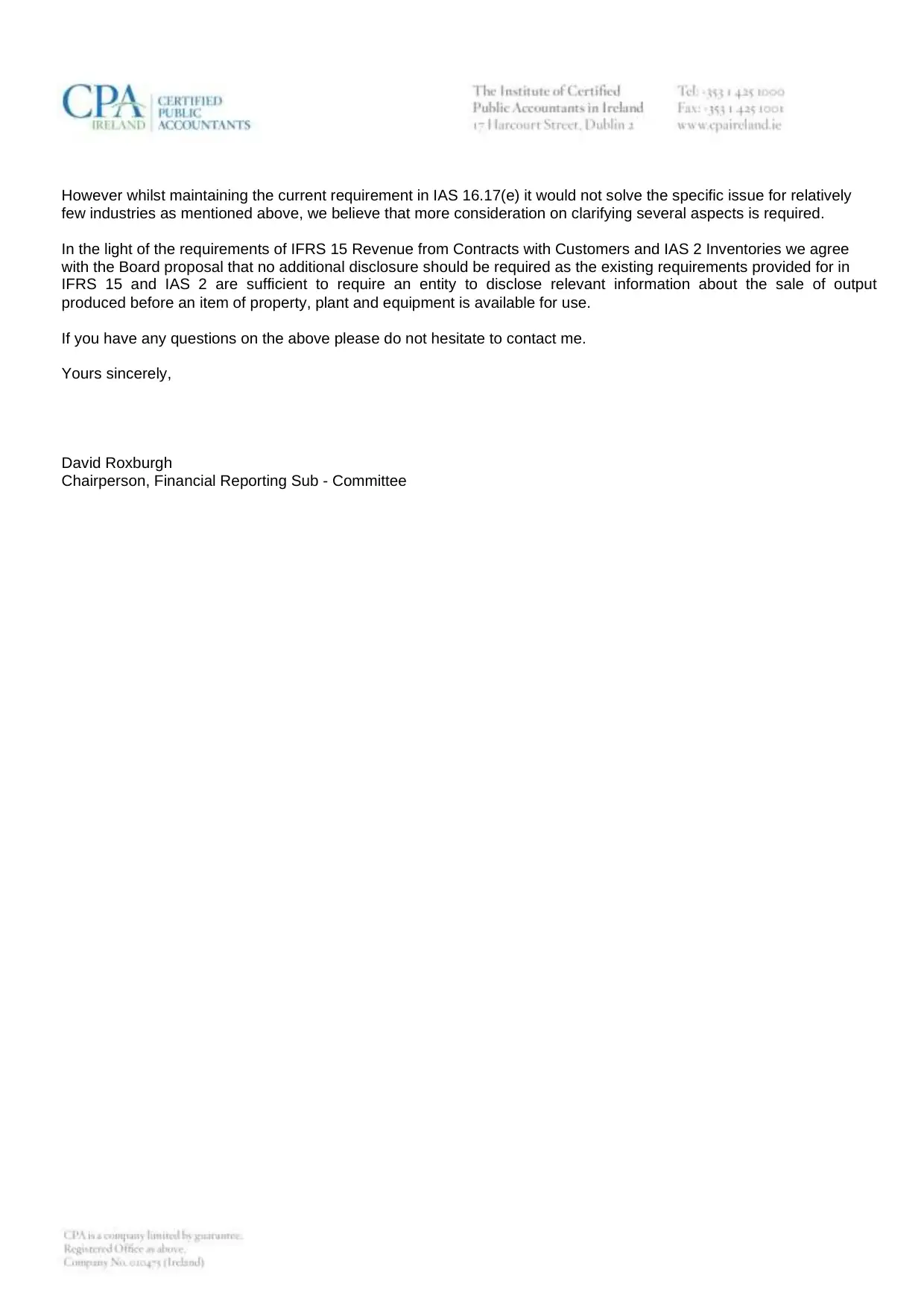Detailed Report on Proposed Amendments to IAS 16 by Public Accountants
VerifiedAdded on 2023/06/13
|2
|763
|127
Report
AI Summary
This report presents the Institute of Certified Public Accountants in Ireland's response to the Exposure Draft ED/2017/4 concerning proposed amendments to IAS 16. The Institute disagrees with the Board's proposal to recognize proceeds from selling items produced during the testing phase of property, plant, and equipment (PPE) in profit or loss. They argue that these proceeds do not represent ordinary activities and could mislead financial statement users. The report suggests disclosing the gain/loss from such sales separately as other income to maintain the integrity of gross profit calculations. While acknowledging the requirements of IFRS 15 and IAS 2, the report emphasizes the need for further clarification on specific industry issues and suggests that existing disclosure requirements are sufficient. The document provides a detailed rationale for the Institute's position and recommendations.
1 out of 2








![[object Object]](/_next/static/media/star-bottom.7253800d.svg)